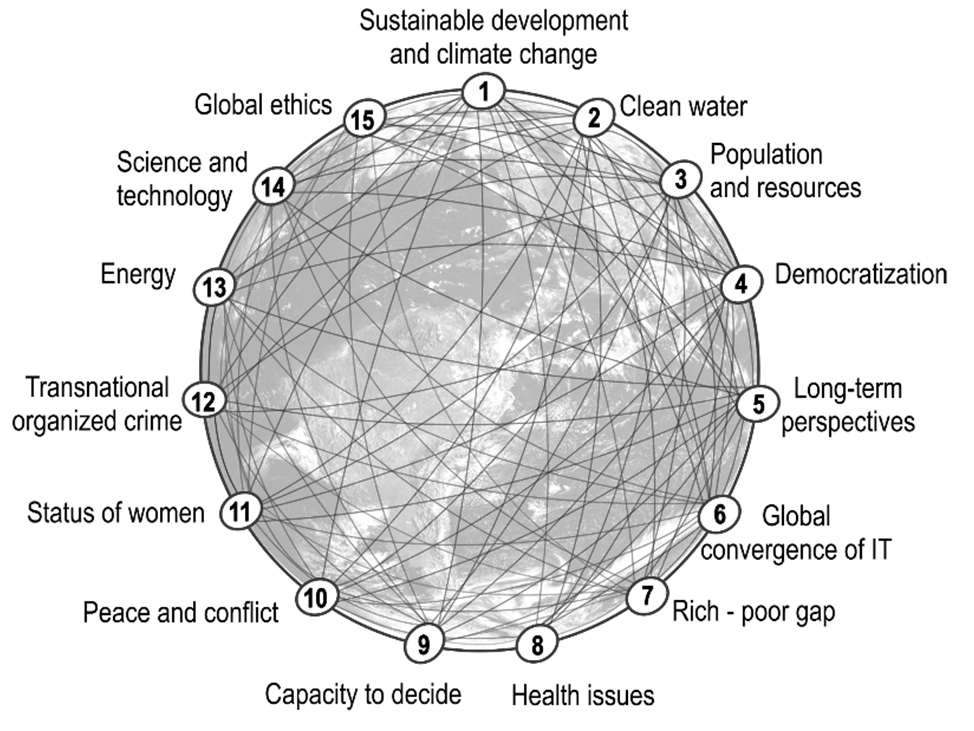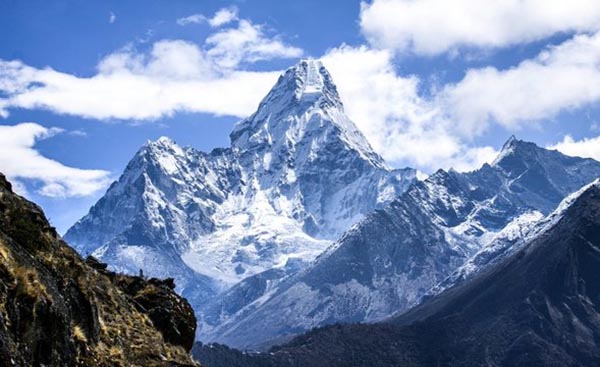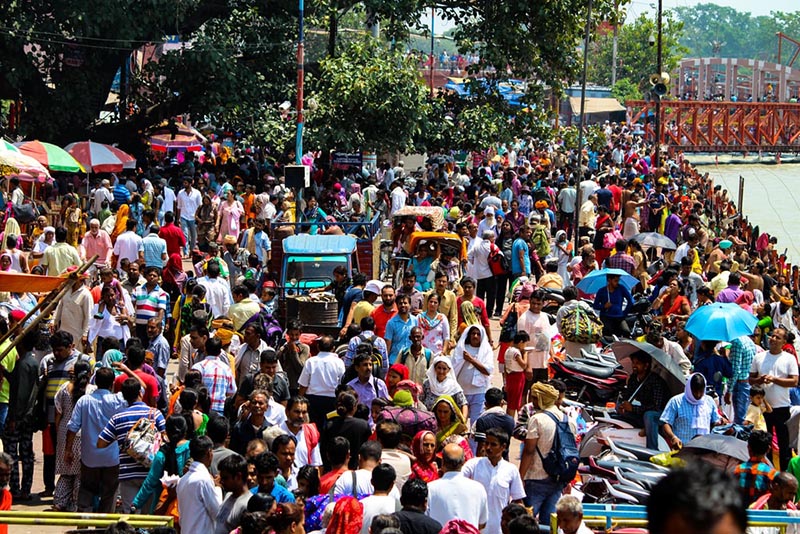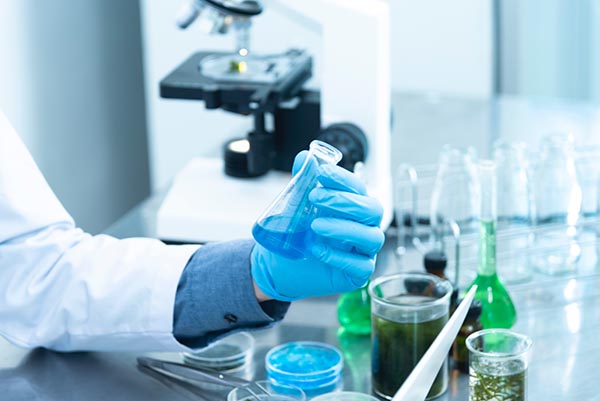OUR CHALLENGE
YOUR CHALLENGE… MY CHALLENGE… OUR CHALLENGE
The Millennium Project is a global participatory think tank established in 1996 under the American Council for the United Nations University, that became independent in 2009.
Its purpose and mission were to improve humanity’s prospects for building a better future, and to improve thinking about the future, respectively. The Millennium Project identified 15 Global Challenges. Although listed in sequence, Challenge 1 on sustainable development and climate change is no more or less important than Challenge 15 on global ethics. These challenges are interrelated. The challenges that Nordstern Perspectives face in the agricultural production space of the food cycle are linked and impacted by the global challenges.

Human induced greenhouse gas (GHG) emissions are rising, albeit at a slower pace. Food production accounts for 30% of global GHG emissions. The greenhouse effect is hampering optimal crop production, and encouraging diseases in agricultural lands. It is destabilizing agricultural productivity. Disillusionment is setting in among farming communities, and encouraging them to ditch farming for work in other industries. We need to address our diminishing capacity to produce crops.
Nature’s strength to absorb CO2 is dwindling. The higher CO2 levels are impeding the nutritional value of crops. Higher concentrations of CO2, increases the synthesis of carbohydrates like sugars and starches, and decrease the concentrations of proteins and nutrients like zinc, iron, and B-vitamins. The excessive intake of CO2 by plants changes their chemical make-up, in a way that is harmful to humans and animals that depend on them for nutrition. We need to address a situation where malnutrition and hazardous food becomes the new normal.
The Himalayan mountains contain 40 percent of the world’s freshwater, which feeds 40 percent of humanity via seven great Asian rivers. Global warming is steadily, albeit slowly, seeing to the Himalayan meltdown. It is one of the greatest environmental security threats in Asia. Global ecosystem services are being depleted faster than nature can resupply. Glaciers are melting, polar ice caps are thinning, and coral reefs are dying. Water tables are falling around the world. Some 40 percent of humanity gets its water from sources controlled by two or more countries, and global water demand could be 40 percent more than the current supply by 2030 (2030 Water Resources Group 2009). Water is emerging as the new gold.

The world population is expected to grow to create unprecedented demand for resources. Most of the population growth will be in low-income urban Asia. Today Asia has 4.2 billion people, and by 2050, it is expected to grow to 5.9 billion.

With it also grows increased purchasing power, expectations and demands. The trend will put corresponding demands on the availability of food and energy. The world is in a race between making a fundamental transition to safer energy fast enough, and the growing needs of an expanding and wealthier population. Population dynamics are changing from high mortality and high fertility to low mortality and low fertility. If fertility rates continue to fall, there will be an elderly world that is difficult to support. Today life expectancy at birth is 68 years, which is projected to grow to 81 by 2100. The farming community that is shrinking due to the challenges to agricultural production, is only worsened with fewer able-bodied farmers and farmhands.
Available resources, including food, water and energy, will come under pressure from growing population. Human history reminds us that the denial and exclusion of necessities to populations, will result in far-reaching wars.
Human endeavour is such that science and technological (S&T) breakthroughs will occur, for the human race to ensure survival. Technology like saltwater agriculture, carbon capture and reuse, solar power satellites, and pure meat without growing animals, for instance will avail a way to beat the global challenge on food production. These technologies would have to work in hand with other key policy measures, including carbon taxes, cap and trade schemes, reduced deforestation, industrial efficiencies, cogeneration, conservation, recycling, and a switch of government subsidies from fossil fuels to renewable energy. At the same time, the promise of S&T needs to be weighed against their environmental health impacts that they are saddled with.

Stakeholders in agricultural production, from farmers to national governments, need to embrace the best available solutions, to achieve more with less.
The development, distribution, acceptance, adaptability and implementation of new, balanced and safe technologies, will determine the success of a country’s food resilience.
Global challenges are transnational in nature and trans-institutional in solution, which cannot be addressed by any government or institution acting alone. They require collaborative action among governments, international organizations, corporations, universities, NGOs, and creative individuals. Nordstern Perspectives PLC plays its role, accepting its limitations that it is neither a global decision maker nor a global influencer. Many of the national and local governments that we work with, are not price-setters in the global arena either. What Nordstern Perspectives PLC is able to do is deal with global changes at the rural level, in the states and provinces of agrarian countries, towards meeting a country’s needs and interests to deal with global challenges. Nordstern Perspectives PLC acts as a catalyst, shows the way, and provides guidance to state and non-state actors, to make the necessary changes, using viable available tools and resources, to beat the global challenges at the agricultural production centres.

